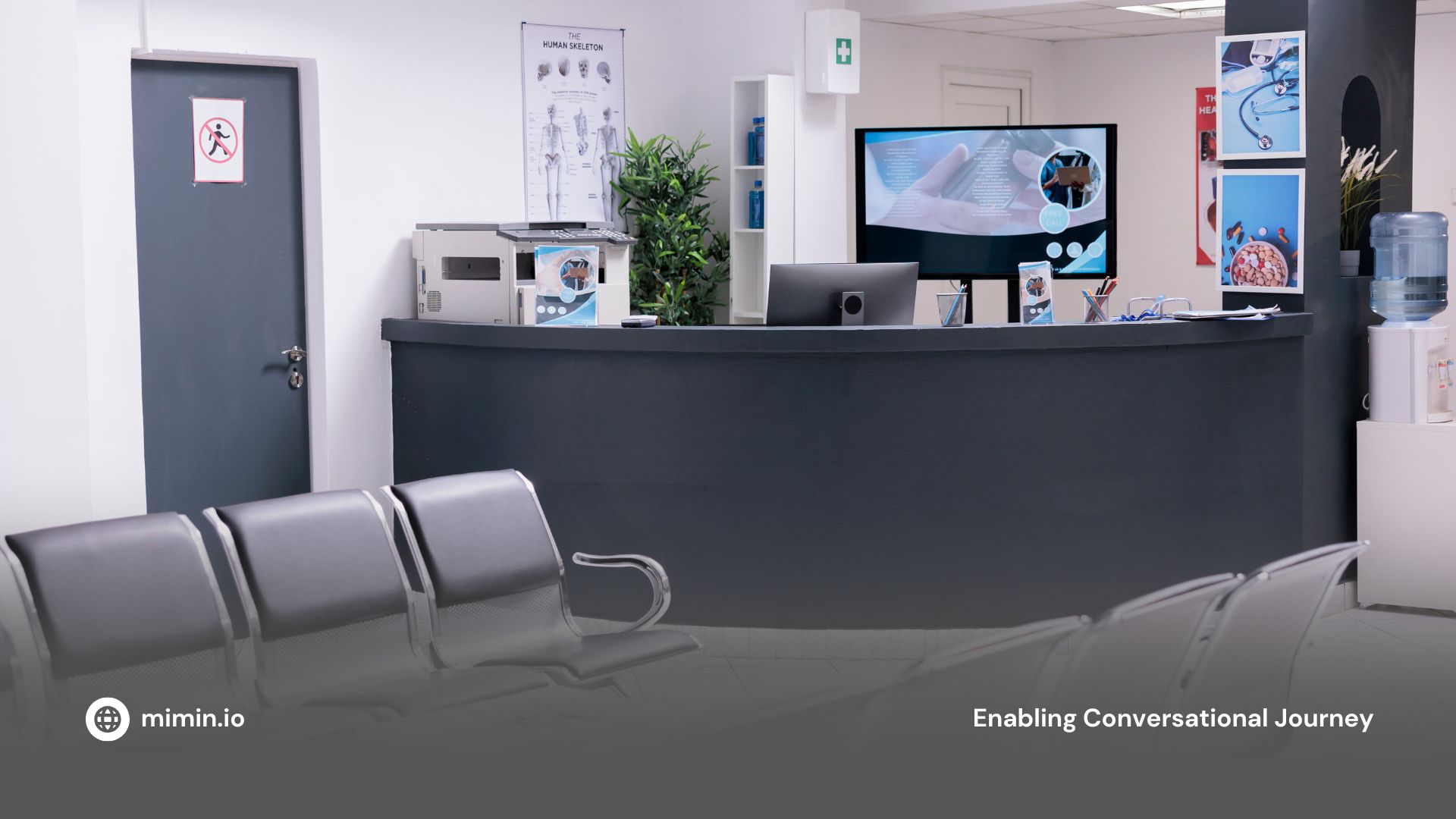Ever been frustrated waiting at a clinic while staff shuffle papers, re-enter data, or ask you the same questions again? These inefficiencies are common because healthcare systems remain fragmented. Different tools don’t connect, staff face repetitive tasks, and patients are left waiting.
The cost is high: administrative overhead consumes nearly 22% of healthcare spending while staff burnout rises and patients lose valuable time.
Why Conversational Agentic AI Matters
Traditional automation is rigid—executing only predefined tasks. Agentic AI, powered by conversation, adapts in real time. By combining chat and voice interactions, it captures behavioral signals during patient journeys and adjusts instantly—freeing staff from repetitive burdens and delivering smoother experiences for patients.
Voice matters, especially in healthcare. While younger patients may prefer chat or apps, older patients are more comfortable with natural voice conversations. Voice-enabled AI ensures inclusivity, making digital healthcare accessible to all generations.
3 Ways Conversational & Voice Agentic AI Transform Clinical Workflows
1. Hassle-Free Scheduling and Check-In
Imagine booking or confirming an appointment in minutes—without long lines or repeated forms. Patients can schedule through chatbots or simply speak to a voice assistant. For older patients, saying “I need to reschedule my appointment” feels natural and stress-free. For staff, fewer phone calls and manual checks mean more time for meaningful care.
2. Continuous, Personalized Support
Care doesn’t stop when a patient leaves the clinic. Conversational Agentic AI can send WhatsApp messages, SMS updates, or automated voice calls for medication reminders and follow-ups. According to Accenture, 77% of patients prefer digital channels for scheduling and reminders—and for seniors, a simple phone call reminder ensures nothing slips through the cracks.
3. Real-Time Responsiveness for Staff
Instead of navigating complex dashboards, staff can rely on AI-driven assistants to surface the right context during interactions. If a patient repeats a prescription query, the chatbot or voice assistant can escalate with full context to a nurse or doctor. This reduces back-and-forth, minimizes errors, and allows clinicians to focus on judgment and empathy.
Building Smarter, Patient-Centric Clinics
Healthcare leaders see the potential. A HIMSS survey found that 71% of hospital executives plan to expand Agentic AI pilots by 2025 to reduce repetitive work and improve compliance. The future of clinical workflows is not just digital—it’s conversational.
With Mimin’s conversational Agentic AI solutions, clinics can combine chat and voice to create inclusive, patient-centered journeys—making access easier for older patients, freeing staff from administrative overload, and improving outcomes for all.
The future of care is clear: smarter, more human, and powered by conversation.
ABOUT MIMIN
Mimin is a platform that helps businesses to create conversational customer journeys with Artificial Intelligence. With Mimin, businesses can effortlessly build chat journeys and establish a positive customer experience.
The applications that can be generated include, amongst others, the ease of running chat commerce, chat campaigns, customer automation, omnichannel inbox, and Generative-AI chatbot.
With Mimin, businesses can deliver superior customer experiences, strengthen customer relationships, and build stronger customer loyalty.
Learn more about Mimin by contacting:
Mimin
PT. Admin Pintar Kita
Graha Charis Siem
Jl. Tanah Abang 5 No. 21, Central Jakarta
Phone: +62 856 0322 5212
Email: halo@mimin.io





